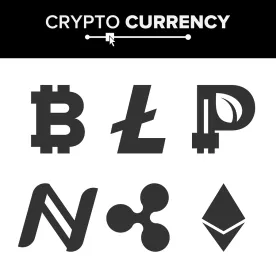CFTC Issues Proposed Rule to Amend Margin Requirements
On May 17, the Commodity Futures Trading Commission released a proposed rule to amend the CFTC’s margin requirements for uncleared swaps for swap dealers and major swap participants. The proposed rule amendments are intended to make the same changes to the CFTC margin requirements that federal banking regulators recently proposed for the margin rules for swap dealers that are subject to prudential regulation (for more information, please see the Corporate & Financial Weekly Digest edition of February 12, 2018). The proposed rule will ensure that master netting agreements of firms subject to the CFTC margin requirements are not excluded from the definition of “eligible master netting agreement” merely because they comply with recent regulatory changes to the treatment of qualified financial contracts executed with banks (“QFC Rules”).
The definition of “eligible master netting agreement” does not currently allow an agreement to contain certain restrictions on the exercise of a covered swap entity’s cross-default rights, which are required under the QFC Rules. The proposed rule would amend the definition of “eligible master netting agreement” to allow such restrictions. The proposed rule also makes clear that a swap would not lose its legacy treatment under the CFTC margin requirements (causing it to become a covered swap and causing any netting portfolio in that it is included to be subject to the CFTC margin requirements) by virtue of the swap being amended solely to conform to the QFC Rules.
In the press release accompanying the proposed rule, the CFTC indicated that the proposed rule was designed to reduce regulatory burdens in the derivatives market and eliminate red tape that hinders job creation.
The proposed rule is available here.
CFTC Issues Virtual Currency Advisory for Exchanges and Clearinghouses
On May 21, the Commodity Futures Trading Commission released a staff advisory that provides guidance to designated contract markets (DCMs) and swap execution facilities (SEFs) that plan to list virtual currency derivatives for trading and clearing organizations (DCOs) intending to clear virtual currency derivatives. The advisory notes that the CFTC’s recommendations are informed by the unique characteristics of virtual currencies that make obtaining information about the spot market difficult, including the fact that the commercial uses for virtual currencies are less developed than the commercial uses of other products underlying derivatives, and there is less price verification. The advisory addresses the need for enhanced market surveillance, coordination and communication with CFTC staff, large trading reporting, outreach to relevant stakeholders and risk management of DCOs.
As it relates to market surveillance, the CFTC recommends that DCMs and SEFs seek to (1) establish information sharing arrangements with the underlying spot markets; (2) conduct real time monitoring of trading activity (including data feeds from spot markets); and (3) undertake additional inquiries if unusual patterns are discovered. The CFTC also notes that it believes existing large trader reporting may be helpful in identifying manipulative activity and recommends exchanges set large trader reporting thresholds for any virtual currency derivative contract at 5 bitcoin (or the equivalent for other virtual currencies). As it relates to expected outreach, the CFTC expects that an exchange that plans to list a virtual currency derivative will seek comment from relevant market participants and consider how to address opposing views it receives. Finally, the CFTC will consult with any DCO that proposes to clear virtual currency derivatives. The CFTC will evaluate proposed margin requirements as well as the DCO’s internal governance procedure for approving the virtual currency derivatives and its adherence thereto.
The CFTC’s advisory is available here.





 />i
/>i

